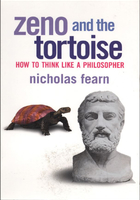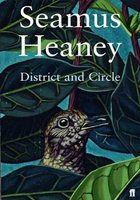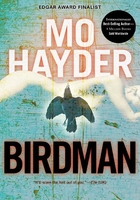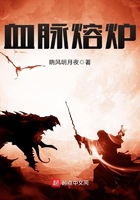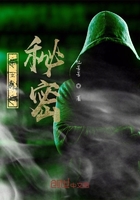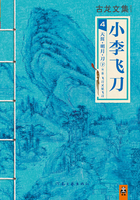MONDAY, NOVEMBER 30, 1959—DALLAS
Toward the end of November 1959, Turk Fletcher came out of the barbershop of the Baker Hotel in Dallas. Just about twenty-three years before, he had gotten the first manicure of his life right there. He had admired the manicurist, Harleen, so much that even after she left to marry the biggest grapefruit producer in East Texas he had continued to patronize the Baker barbershop. He kept track of his haircuts, as he kept a careful record of nearly everything, in case the Internal Revenue ever questioned his expenditures. He had been pleased to note that he had had two hundred and eleven out of two hundred and seventy-six haircuts in the barbershop at the Baker.
On the way out, inhaling the wonderful odors of tonics and cures, the steaming towels and the good clean soap, his back to the barber, who was staring with horror at the ten-cent tip Fletcher had just given him, he was bumped into by a short, stocky fellow who just didn't give a goddam where he was going. If the little fucker couldn't see him, he couldn't see a hole in a forty-foot ladder. The man's hands apologized for him before his voice could say it. They grabbed Turk sincerely and set him right. Then he came right out and said, "Say, ain't you Turk Fletcher?" Fletcher nodded like a billy goat (excepting he sure didn't smell like one right at that minute). "I seen you shoot in Crystal City and at the big chili cookout up to Nito Bennett's ranch."
"Win a little?" Fletcher asked smarmily.
"Some. I know maybe a dozen people who think you're the finest rifle shot alive."
"Purely fine of you to say it."
"Would you do me the honor of acceptin' to drink with me?" This fellow was something else, Fletcher thought. "It would purely be a pleasure," the stocky man said, "and more than that."
He had a bright pink face as if barbers had been pinching at it day and night. He had a curvy, white, bartender's haircut. The part in his hair was a pink, flat, straight ribbon. He was wearing a sure-thing mail-order suit, so he had to be country bred. He had kind of a crude-oil look to him, a good, old-time look. "Call me Casper or call me Junior," he said. "The name is Casper Junior. And I hope, with all respect, that you'll let me tell all my people that you asked me to call you Turk."
"Call me Turk," Fletcher said in his slow, hoarse voice.
They went up to Casper's suite of rooms on the fourth floor. Fletcher thought suites of rooms were a great way for a man to chouse his money and make it all nervous. Nobody could live in more than one room at a time. People were outside most of the time anyways. He'd never lived in anything bigger than one room in his life. But, oh hell, it wasn't anything to get chuffy about.
"In town for long, Turk?"
Casper was the kind of a fellow who polished a bottle with a towel before he poured your drink. He had to have been a bartender before he found the money to throw away on hotel suites. Turk had never seen a bottle of bourbon so undusty. Casper poured them both drinks in a pair of bathroom glasses, then it turned out the little fucker had a goddam icebox right in his parlor. He pulled a bowl of ice out of it, put two lumps into each glass—as if one cube wasn't cold all by itself—then put the bowl back. Casper must have learned about life from a correspondence course, Turk figured.
"I live here in East Dallas now," Turk said.
"What about your Rifle Association work?"
"Well, that was no life. I was as homeless as a poker chip and the West Texas food wasn't gettin' to me. I got a mean little stomach, and the best thing is like cheese, so I come back into Dallas where I could get it any time of day."
"But what about rifle shootin'?"
"I still shoot for the side money. The boys still like to bet if I can hit it or I can't."
"The rifle is sure your meat," Casper said. "We was talkin' once out in Bryson, Texas—the town named for the great actor?—or no, maybe it was Littlesam—hell, no, I think it was in Bryson—about what the fortune teller said to your mother?"
"I guess ever'body knows that story." Turk meant it He was sure everybody in Texas knew that story.
"Well, you'll sure as hell go into history as the best marksman in the world in your time or any old time."
"No," Fletcher said reluctantly. He had thought a lot about it. "Tom Frye could beat me with a Remington Nylon sixty-six, twenty-two calibre. And I know Zeiser can take me with benchrest rifle rules, because he has goddam well done it."
Casper filled Fletcher's glass with more of the same fine drinking whiskey.
"Then maybe the prediction means you're gonna shoot the most famous man in the world," Casper said with a broad grin. "That sure would put you into the history books."
"I guess it would." He sipped at the whiskey and stared at the wall. "Hell, come right down to it, Wigger and Anderson can both take me with a small-bore rifle."
"That's a different story," Casper said. "Them boys is full-time record-book shooters."
***
Over the next month or so Casper Junior saw a lot of Fletcher. They would run into each other accidentally at first. Fletcher saw nothing unusual about that or about Casper's hero worship. They began to dine together once a week, always at the best places, such as Old Warsaw, or Arthur's, or Town and Country, and with Casper always grabbing the tickets. Turk felt Casper was the kind of a man who liked to spend money. Turk had given his life to Texas, but that hadn't made him rich, although he knew he was meant to be rich. It took a rich man to keep grabbing dinner tickets like these, and if Casper wasn't rich it would be poor manners to let on that Fletcher thought that Casper was just pretending to be rich.
Suddenly, for no reason in this world, Fletcher lost his job on the crane.
The foreman just came up to him on the third pay-day and told him he was through. Fletcher wanted to know how come, but the foreman just walked away. Nobody could understand it. "Why, it wasn't a week ago that this same little pissmire was tellin' me an' ever'body else that I am the best crane operator in the entire Southwest. I mean, I've known that man and he has known me and my work for near to eight years," he told Casper.
It put him off his feed. It turned his stomach all sour. He had saved, sure. But if you had to spend what you had saved, that was wrong. He was just not a spending man. He was a man who had respect for money. He worried himself sleepless about keeping the nurses and doctors sweet at his momma's nursing home. It was true that Momma was paid up for life at the nursing home and that they all loved her there, because you just couldn't help loving her and because she had left the nursing home everything she had in her will, but just the same Momma said he plain had to send her cash money twice a month. He knew the nurses and doctors took it away from her before she ever got it but that everybody treated her nicer after they stole it from her. She was a real old lady. She slept most of the time, but once, when he had forgotten to send through some cash right on time, they had started pinching her and they made her get up and walk in the windy halls late at night instead of letting her sleep.
Fletcher hadn't been without some money coming in since he was twelve years old. He was scared. He didn't tell himself what a good batting average he had as a steady earner. He never reminded himself that he had one hundred and two thousand, four hundred and six dollars in four banks around the state. He just said to himself that he was forty-four years old and his momma needed him, but that he didn't have any son to take care of him when he was old like Momma.
His stomach got so bad he could eat only chili. They had to stop eating in all the expensive places because he couldn't stand to see all that money being paid out just for cooked food. By the week after he was fired they were having dinner together three times a week at the Spanish Village in Cedar Springs or out to Joe Garcia's in Fort Worth. Casper had got so he just didn't want to talk about anything except how Turk was heading straight for the history books.
"You know what I found out?"
"What?"
"Fletcher means 'maker of arrows.'"
"I didn't know that," Turk said. "I'm good with a rifle, but I never handled a bow and arrows in my life."
"No. That ain't it. It's a meaningful symbol. You are a maker of arrows who is going to pass into history because of the way you can shoot. A rifle, that is."
"I always knowed I was meant to do big things," Fletcher said. "My momma taught me that from the time I was about fryin' size. That was my heartbreak. I mean, I can shoot a rifle, but I was never stretched. I mean, I got all the shitty details in the army. My momma used to tell me I might be Viceroy of India, so, what the heck, anything I ever did never seemed like anything to me. I never seemed to be able to climb into the real money. They was like fifty bandidos around Dallas and Houston and ten other Texas towns all bulgin' into the big money while I was just a workin' stiff, and I ain't even that now. I been turned down for three jobs in a row, and that never happened before. They ain't any crane work left for five hundred miles around. All I have to keep me goin' is what is keeping Momma alive—we both know I'm gonna pass into history. But when?"
"Turk? I know a man who'll make you rich and push you into history if you'll point your rifle and shoot Tim Kegan when he rides by."
"I guess we both know a coupla hundred of them," Fletcher said glumly. "Right here in Dallas."
***
One Sunday afternoon on the way back from a big country rifle shoot at Fort Peters, where Fletcher made himself five hundred and twelve dollars betting on himself and Casper made maybe ten times that much, they were rolling along home in Casper's big sand-colored Cadillac with the thin red stripe all around it when Casper said, "Seen the papers, Turk? Kegan is beggin' the Russians to be nice to us again."
"I never read newspapers," Fletcher said. "They say one thing today, then they say something all different a week from now."
"Don't you care what happens to your country?"
"Pew, Junior. Everybody in Dallas cares about that. Let them take care of it. I don't have a head for politics."
"Well, you can write this down in your little book," Casper said. "Kegan is just asking for it."
"Ever'body in Dallas knows that too."
"All right. Then you know where the people of Texas stand. And the whole oil-depreciation allowance."
"Junior, first I got to get me a job, then you'n me can talk about politics. Okay?"
"Would you take twenty-five hundred dollars and all expenses to spend a little time on a ranch?"
"Doin' what?"
"Showin' a man how to shoot a Garand rifle the right way so's he can run it good enough to pot Tim Kegan ridin' past in a car?"
"No shit?"
"Twenty-five hundred dollars cash. And here's where the class comes in. My boss doesn't blink an eye at money. He'd like to buy hisse'f the mental comfort of knowin' they was two men shootin' at Kegan instead of just the one, and he'd feel best of all if one of them was a shooter like you."
"I sure as hell don't seem to be able to get any other kinda work."
"Sixteen thousand, five hunnert net for doin' what you do better'n anybody alive. For maybe sixty seconds of work. Sixty seconds to pot the most famous man in the world and push yourself right into history."
Fletcher turned his head slowly and stared at Casper with all of his catcher's-mitt expression. Casper kept his eyes on the road. Fletcher enjoyed talking about good-sized chunks of money. He had obliged a fellow once before and had shot down a tortilla politician in the State of Vera Cruz because he'd been paying for his momma's keep in Winship Falls, New York, for twenty-seven years. Money didn't berry out on bushes.
"Shoot a man like Kegan and you never get to spend the money," Turk said tentatively.
"Oh, yes, you do. My boss is just as big a man as Kegan. They ain't nobody he don't know and he's talked around about it to alla them. I mean, everything is settled. You goin' to get top cooperation from the very top people."
"Who is your boss, Casp?"
"My boss is a man who knows the cool-headed way you handled a job of work in the State of Vera Cruz, Mexico. And he admires you for it."
"A fact?"
"Sure is. Now—what do you say?"
"I got to think about it," Fletcher said. "I am not quick, but I am thorough."
Fletcher made a chart in his room in East Dallas after mulling things through with two bottles of Pearl. He wanted all the facts right in front of him in good-sized letters so he could think the proposition through. A man who took a running jump into anything deserved to sink up to his hat. He stared at the chart, sipping beer.
ALL DALLAS FRETS.
HE IS A TRAITOR.
SAVE AMERICA?
MOMMA—HISTORY IS MEMORY.
SIXTEEN FIVE—IS IT ENOUGH?
THINGS TO WATCH FOR.
WHO LEAKED VERA CRUZ?
No reason to trust Casper any more than anybody else. Hell, the man who had hired him for Vera Cruz was dead for over four years, and they had already hung somebody for killing the fellow he had shot. But, by God, Mexico didn't have the budget of the government of the United States. Boil up the federal people and they could really go after you. There were a lot of newspapers back east that were sure to make a big thing out of somebody shooting down a President. Man, they'd sure have to grab somebody—though it would all cool off as soon as they settled on who was to blame. He wondered if it had been that little fucker Casper who got him fired off the crane. Goddam pissmire. Sure, Casper made everything look easy, but the money wasn't right. The money was an insult to the President. The head honcho had to have so much money he could never count it. Shooting a President was a big job. They needed the best man there was.
Two nights after Turk got back from some ranch in the west country somewhere, when he and Casper had settled down over a couple of bowls of red and some good cold Pearl beer, Casper said, "Did y'all think of what I was sayin' to you on the ride back from Fort Peters?"
"Yes, I did."
"How do you see it?"
"The basics is what bothers me."
"That was a mighty generous price, Turk."
"I do not agree."
"How much do you have in mind?"
"Fifty."
"You just have to know that cain't be."
"I know what cain't be all right. It's your figure of sixteen five net."
"We are willin' to come up a little, Turk, but you gotta know our overhead. The other rifle, his assistant, paying police, sweetening Feds, flyin' us up and back, hotel bills, tips, meals, laundry, rifles and rounds, car rentals—I mean, you are just part of the over-all."
"I bet you are paying the other rifle plenty more."
"I'm not so sure about that. We are Texas people and so are you, and we wouldn't stand for that. But even if it was a few dollars more, you'd have to say he's a city feller and his overhead is higher."
"I'll go for thirty-five."
"Turk, I think you should know that everybody in this gets a life-insurance policy made out to whoever he says. That is the kind of a man we are working for."
"I appreciate that."
"On the line."
"That is real courtesy."
"Ten-day term insurance for one hundred thousand dollars face value, and we pay the premiums."
"Junior, you seem to know so much, you must know I got fifteen for the work in the State of Vera Cruz, and that was back-country stuff. This is right out there in front, and you know it."
"We are going to be spending upwards of four hundred thousand dollars just to put you at the end of a board so's you can jump into history. That's worth a lot, Turk."
Fletcher shoveled in the chili and chewed thoughtfully. He didn't speak for almost ten minutes. When he finished bowl number one Casper called out to the waitress for two more.
"Twenty-five thousand," Fletcher said at last.
"Twenty-two thousand, five hundred gross," Casper snapped. "That is, including the twenty-five hundred for the shootin' lessons."
"I guess that'll be all right," Fletcher said, "providin' you pay it over on the mornin' of the day."
"Absolutely."
"Abso-abso-abso-lutely," Fletcher said. "There is one thing I am stickin' to, Casper. If I don't get my money on the morning of the day, I plain ain't goin' to work."
***
On the morning of the day, February 22, 1960, in a furnished room off Walnut Street, Turk Fletcher put on the Philadelphia policeman suit they had given him to wear. He packed the disassembled rifle, a civilian suit, a green-and-brown-striped bow tie, a heavy wrench and Western Stories in the boughten bag he had brought along from home. He locked the bag, then he snapped a padlock on the hasp he had welded to it. A man had to do his own independent thinking to stay in one piece with a crowd like this, he thought. He hadn't liked the sound or the look of the Number One rifle from the time he had first set eyes on him at that fake-ass ranch in Arizona. The little basser was just a cheap gangster and some kind of a fairy fellow too.
At seven thirty Casper knocked at the door and Fletcher let him in.
"You are sure something to see in that suit," Casper said. "There has always been something gentling about a policeman to me."
He gave Fletcher an envelope and they sat down at a round table to count it out. It was all there. They shook hands. "I know you are going to do a fine job," Casper said.
"I am going to do my best," Fletcher replied, then Casper left.
At ten minutes after eight, young Willie Arnold, the Number One rifle's "assistant" (shee-yut), a blubber-lip who looked as if he couldn't drive nails in a snow-bank, came to pick up the boughten bag and take it to Room 603 in the Engelson Building, where he would lock it in. They didn't speak. Willie wasn't his "assistant." Willie just stayed out in the hall. He handed Fletcher the key to 603. Fletcher handed him the boughten bag. Willie went right back down the stairs. He sure looked boogered.
Fletcher went back inside and folded the money into a money belt and put the belt on. He thought how, if anyone had ever told him when he was twenty-one years old that the day would come when he would be paid twenty-two thousand, five hundred dollars for a morning's work, he just would have thought that person was crazy. He had very much in mind that they had agreed to pay him so handily because when the police came asmokin' for him—as they all sure as hell had it all set up—they would find all that money on his poor dead body, and that would be sure evidence that he had been the man who had shot the President. He giggled softly to himself, purely enjoying the surprises that were coming to some people.
He was down on the street in front of the building when the police patrol car with only one man in it pulled up at nine twenty. The driver looked pale. He hung onto the wheel to keep from shaking. He was a thick-looking basser.
It was a four-minute drive to the Engelson Building. The car stopped at the delivery entrance. Fletcher got out.
The driver's name was Bailey Bissett. He said to Fletcher, "I don't know what you'll be doing up there, but I'll be waiting right here with the engine running when you come down."
"Well, fine," Fletcher said.
"When will that be?" Bailey Bissett's voice squeaked he was so spooked. "When will that be?"
"About twelve thirty-six, I figure. Be brave, son." Turk went into the building.
***
He walked up the six flights of service stairs and let himself into 603 with the duplicate key. He locked himself in. The boughten bag was on the floor. There was no furniture in the room except one chair. He went to one of the two windows that faced Hunt Plaza. The plaza was empty of people. The traffic was moving through under the railway bridge at the bottleneck. It was nine thirty-nine. The presidential motorcade was due to move through at about twelve twenty-five.
He assembled the rifle with admiration. It was the sweetest goshdarned rifle he had ever fired. It was a U.S. Rifle Calibre .30 M1D sniper fitted with a Lyman M84 scope that had a cross-wire reticle and a rubber eyepiece on a special 26-inch barrel. It weighed nine pounds, less the magazine. It provided semiautomatic fire on a closed bolt. Fletcher had had a metal outline stock made for the rifle at Fort Worth. It was fitted with a foam-rubber cheek pad. The special stock was only slightly wider than the barrel itself, making the weapon into one long magic wand. He whistled "Little Joe, the Wrangler" as he chose bullets from a box with delicate care. He propped the rifle up against the wall, then changed into civilian clothes. He stowed the police uniform in the suitcase, took out Western Stories and settled down in the chair to wait, looking at his watch about every eight minutes.
At half past eleven he put the magazine back into the suitcase and did fifteen minutes of setting-up exercises so his circulation would be normal when he went to work. He looked down at Hunt Plaza. About a hundred and fifty people had collected to see the President whisk through. More were coming in.
He watched Number One rifle drive the panel track marked AIR-CONDITIONING along the Euclid Avenue channel, drive off under the railway bridge, then turn off to the left into Rackin Boulevard. Fletcher knew he would circle around into Market Street, then turn again into Klarnet to get to the parking lot behind the fence at the top of the grassy knoll. The truck had plenty of time to get into position. No other cars could get in behind the fence because Willie Arnold had roped off the space between two NO PARKING stanchions early that morning. When the Number One rifle backed the panel truck in, he would crawl to the back of the track, take the rifle case from Willie, use the back gate of the truck as a benchrest for the rifle barrel and shoot through the fence and the protecting bushes. He'd make his two shots, close the back gates of the track, slide into the driver's seat and glide away.
On schedule, Captain Heller's lead car of the Political Squad in front, drawing the Plaza on the President's tour through the city to the Liberty Bell, outriding motorcycles in front of and on either side of the President's car, the Vice-President and many members of the presidential staff in the cars following, with the President's physician riding eleven cars behind, the motorcade swung into Hunt Plaza and moved toward the invisible line between the two rifles that bisected the square.
Fletcher's hands were sweating lightly, but no more than when he had competed against Zeiser and had put four consecutive shots into a one-inch hole at a hundred yards. The President rode along in the open car beside the mayor of Philadelphia. He was grinning broadly. Fletcher tracked with him. The procession turned sharply to the left and headed due west toward the underpass of the railway bridge. Number One would fire in four seconds. Fletcher counted deliberately under his breath, tracking through the scope smoothly just above and to the left of the President's head.
The President jolted backward. Fletcher saw the mayor's body jerk sharply to the left and knew the Number One rifle had missed with his second shot. Fletcher squeezed the trigger. The occipitoparietal section of the President's skull went out while the mechanical components of the rifle moved swiftly to deliver the second shot. The camming surfaces on the inside of the hump on the operating rod of the rifle engaged the camming surfaces on the operating lug and rotated the bolt counterclockwise. The residual pressure in the gas chamber and the momentum of the operating rod and bolt extracted and ejected the cartridge and cocked the hammer. The operating rod carried the bolt forward and fed the cartridge into the chamber as Fletcher tracked the car above and to the left of his target, dropped the rifle muzzle slightly and squeezed the trigger a second time. The bullet passed the gas port, crossed the plaza and slammed into the President's back.
Fletcher turned and stepped away from the window with the same involuntarily formal movements he had used so many times to step out of position on a firing range during the years when he had been an inspirational demonstrator for the National Rifle Association in the Southwest. He propped the rifle against the wall. He took the heavy wrench out of the suitcase. He used it to turn the joint on the wide vertical heating pipe that ran from ceiling to floor in the southwest corner of the room. The pipe came apart as he had designed it. He lowered the rifle into the pipe. He secured it in suspension from a wooden rack that he had built into the false pipe at the joint. The rifle hung straight downward. He reassembled the pipe, tightened the joint, put the wrench back into the suitcase with the police uniform and Western Stories, closed the bag and left the room. He locked the door behind him. He turned upward to the stairs to the roof, crossed four building roofs before he went down to street level again, to emerge in the heavy pedestrian traffic of Market Street. It was a glorious day, not a cloud in the sky and with a bright sun overhead. It looked like they were going to have a wonderful winter.
Twenty-seven minutes after he had made the two shots he was riding out of Philadelphia on a Greyhound bus to Cleveland. He worked his way back eastward from Cleveland by plane to Albany. He was sitting in Momma's room at Winship Hall and watching television while she slept when he saw Joe Diamond shoot down Willie Arnold in the basement of the Philadelphia Police and Courts Building while Arnold, handcuffed to a Philadelphia detective and surrounded by more than seventy Philadelphia police, was being led to a waiting police car.
Turk grinned broadly as he watched. They sure were a slick bunch of guys.

